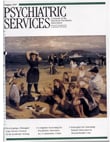Satisfaction of Vietnamese patients and their families with refugee and mainstream mental health services
Abstract
OBJECTIVE: The study examined levels of satisfaction with mainstream mental health services and specialized mental health services for refugees among Vietnamese psychiatric patients and their relatives. Demographic, diagnostic, symptomatic, and service-related issues that might influence satisfaction were investigated. METHODS: Eighty-six Vietnamese patients were identified from case notes of mainstream inpatient services (N = 31), mainstream community services (N = 7), and a specialized refugee treatment unit (N = 48). During an interview, a scale measuring satisfaction with treatment as well as measures of anxiety, depression, and posttraumatic stress disorder was administered to them. A modified satisfaction scale was administered to 56 relatives. RESULTS: Patients and relatives were, on average, moderately satisfied with treatment. Patients expressed greater satisfaction with the specialized treatment unit for refugees than with mainstream services, a finding that was not influenced by diagnostic differences or symptom levels at the time patients responded. Further analyses controlling for multiple comparisons revealed that the extent of the information provided and the ease of negotiating changes in treatment were the most salient variables in distinguishing satisfaction levels across the two types of treatment centers. Patients' fluency in English and their relatives' level of education were inversely associated with satisfaction scores, tentatively suggesting that the greater the ability of patients and their families to evaluate services, the less likely they were to express satisfaction with treatment. CONCLUSIONS: Specialized mental health services for refugees may be more acceptable to refugee populations than their mainstream counterparts, perhaps because better communication with patients and their families is possible in the specialized services. Patients and families who are in a position to evaluate services fully are more likely to be critical of treatments offered.



